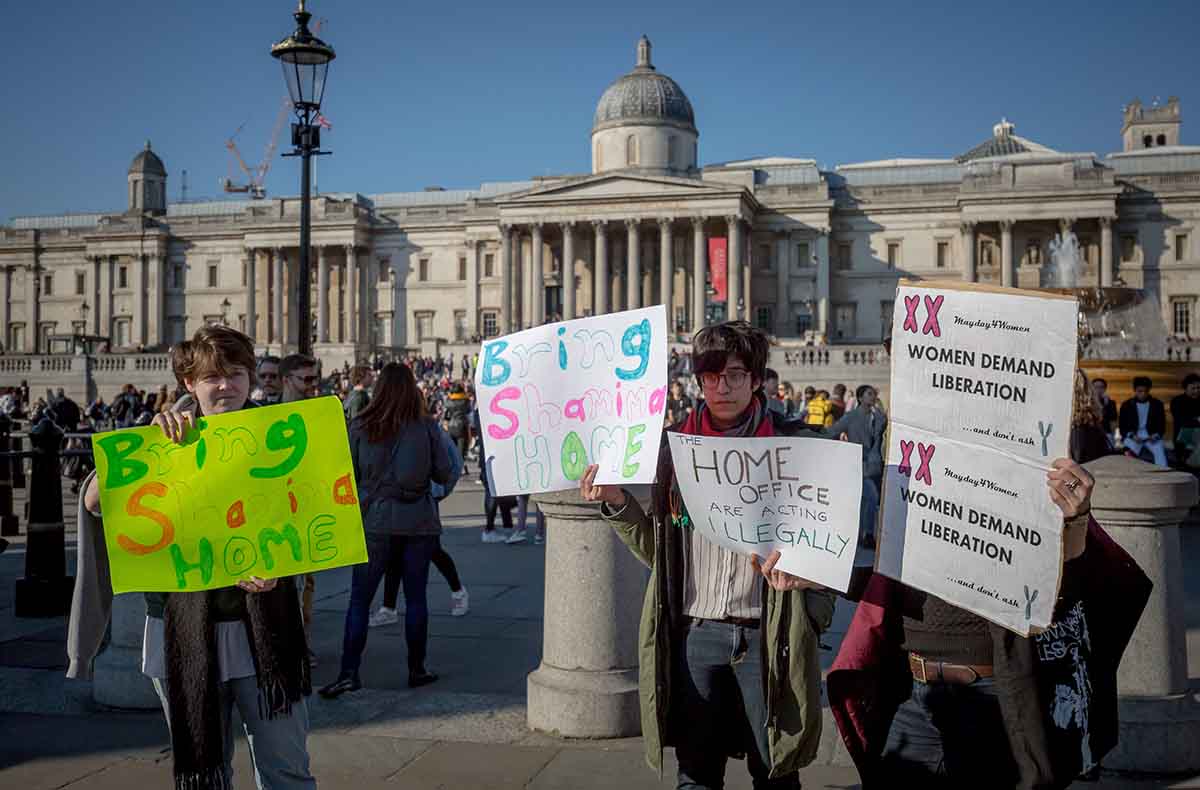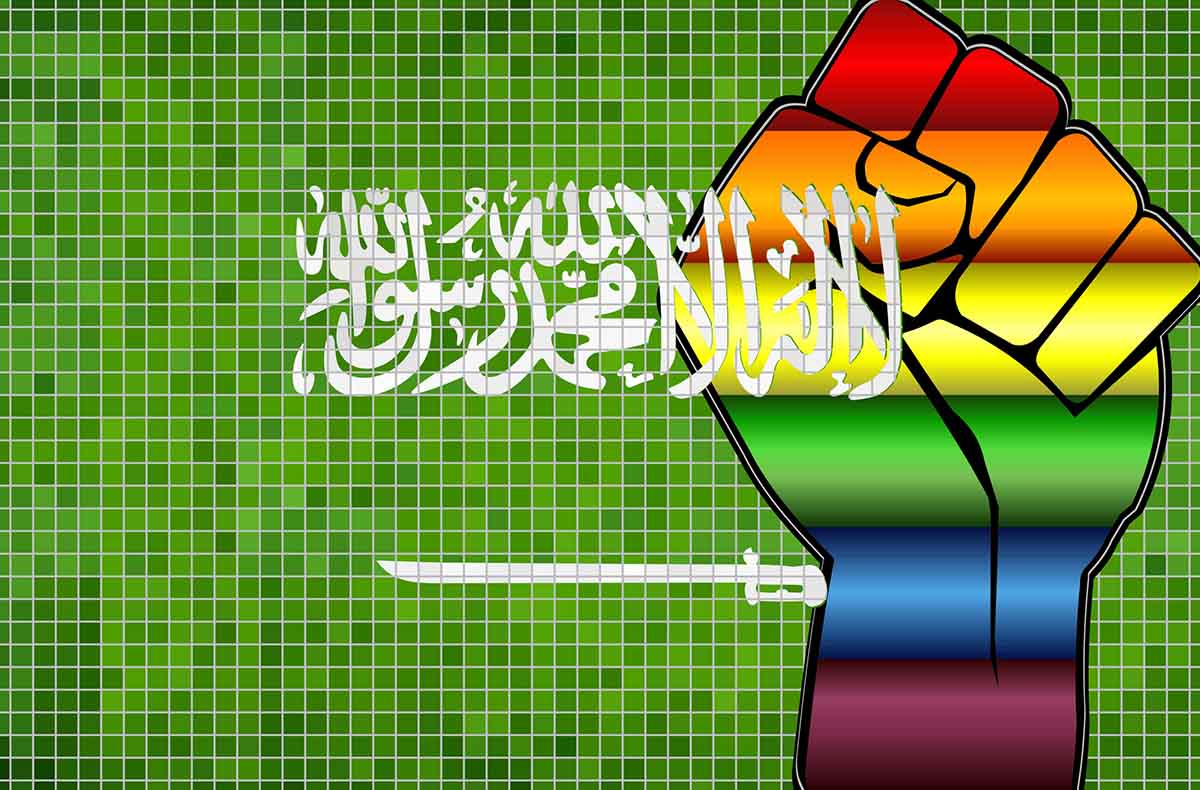
Shamima Begum, the British-born Muslim woman who joined the Islamic State in Syria as a 15-year-old in 2015, has lost the appeal over her UK citizenship being revoked, with the Special Immigration Appeals Commission ruling in favor of the then Home Minister Sajid Javid’s decision in 2019.
This has sparked condemnations from rights groups and progressive sections of the intelligentsia delineating the child bride’s victimization by grooming.
And while one can dissect the ruling by questioning British authorities, the country’s national security strategy, or even its power to revoke citizenships, perhaps the most striking feature of the case is the overwhelming focus on the individual—both by her defenders and detractors—in lieu of the menace that oppressed her and continues to loom at large.
In February 2015, Begum was six months shy of the then legal age for marriage in Britain, which was raised to 18 only last week. The same year, at least 1,000 girls younger than her were forced into marriage, many of them by British imams performing the Islamic nikkah.
While the UK remains focused on Shamima Begum—both an underage victim and then proponent of radical Islam—British policy and opinion makers don’t appear as invested in the thousands of Muslim child brides that did not join ISIS.
Root causes behind the prevalence of Muslim underage brides
Indeed, Muslims aren’t the only community witnessing underage marriages. Their disproportionate prevalence in Muslim communities, however, is rooted in child brides being justified via Islamic scriptures, citing the marriage of Islam’s prophet Muhammad to six-year-old Aisha.
Much of these rulings are justified via UK’s Sharia courts issuing verdicts on matrimonial and familial matters within the British Muslim community, mirroring the jirga system in countries like Afghanistan and Pakistan—a parallel justice system based on antediluvian codes that oppress women and children, often in the name of communal integrity and its gory offshoots such as “honor.”
The allowance of Islamic sharia to rule the lives of British Muslims has not only allowed child marriages to spread within the community, it has suppressed women in general by upholding the skewed Islamic law provisions to deny them fundamental rights.
An overwhelming majority of the nikkahs remain outside the legal jurisdiction, with a 2015 report citing that 80 percent of British Muslims under the age of 40 do not register their marriages in civil law, and similarly four out of every five mosques are not registered to carry out civil ceremonies in line with the Marriage Act 1949.
Without legal protection for Muslim women—almost a third of whom don’t even know that their marriages aren’t legally recognized—the families are given absolute control over young girls fearing the worst in the case of any perceived deviance.
As a result, while Christian and Jewish women in the UK can benefit from laws like the marriage act, and Section 10A of the Divorce (Religious Marriages) Act 2002, for financial safeguards, the basic rights of Muslim women are held hostage by sharia rulings, with victims of underage marriages being the most vulnerable to abuse.
Challenging the façade of Islamophobia
Many of the British liberals expressing admirable clarity on Shamima Begum’s inalienable human rights and her abandonment by British authorities seem wholly invested in muddling the obvious realities of the ideological superstructure that victimized her in the first place.
They have similarly remained unable to muster the intelligibility needed to recognize the glaringly ominous reasons why honor killings are soaring in Britain or why they impact certain communities—the same ones they self-identify as defenders of—more than others.
These progressive activists appear more invested in macro blame-attribution than protecting victims from their immediate persecutors, to a point that they now appear to be upholding de facto Islamic blasphemy laws in Britain.
These same ideological circles that once unequivocally condemned young Muslim girls being forced to wear the hijab are now echoing with accusations of “racism” and “Islamophobia” over efforts to stop this blatantly grotesque sexualizing of children as young as five years old.
This “Islamophobia” façade, in stark contrast to its self-avowed protection of Muslim rights, only enables spread of Islamist dogma over the community, with young Muslim girls often the primary targets. That those indoctrinated with Islamic sexism do not explicitly call themselves its victims appears to suffice in their abandonment at the hands of those now echoing rallying cries in support of Shamima Begum’s louder, more obvious, victimhood narrative.
Most Muslim women do not want British sharia courts shut down—in addition to this parallel justice system oppressing them into its dependency for even the barest of residual rights—for the same reason that many women in South Asia living under the jirga and panchayat continue to accept their verdicts.
Advocating children’s “right” to defy policies uniformly applicable on everyone else in the name of “cultural” or “religious” differences in effect emboldens the indoctrination—and subjugation—rights of parents and the totalitarian codes that they adhere to.
This duplicity was unraveled when Muslim parents’ protests over LGBT lessons in a Birmingham school in 2019 was met with liberal resistance and a high court ban over demonstrations.
Whereas the demonstrators felt children were being “sexualized” by two male penguins raising a chick, but not by toddlers being asked to cover up in line with Quranic dress codes “so as to not be harassed,” many progressive activists similarly stood up for gay rights but not the rights of Muslim girls, LGBT members, or dissenters perpetually thrown under the Islamist bus.
Just as forced and child marriages in Britain can be undone via uniformly secular legal codes, including mandating Muslim marriage registration, all rights can be identically protected by embracing universal values devoid of any identitarian algorithms.
That requires absolute, unflinching, moral consistency that doesn’t alter the flow, or decibels, of arguments depending on where the blame can be pinned.
For, if a 15-year-old didn’t know any better than to not join the world’s most lethal terrorist outfit, a five-year-old isn’t exactly exercising her free will by donning visibly misogynistic moral codes that lay the foundation for sexist subjugation and violence.


